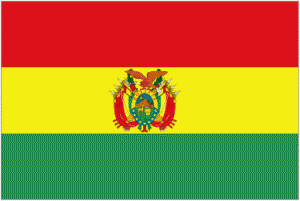January 24

Today is the annual Alasitas festival in Bolivia’s capital city of La Paz.
Alasitas isn’t a Spanish word but an Aymara one. It means something akin to “Buy me.” And if you thought El Norte held a monopoly on consumerism, don’t put your money on it.
Alasitas is all about prosperity in the coming year. People buy miniatures of whatever it is they hope to achieve. Actually it’s better luck if someone else buys it for you. And you can buy just about anything for what your heart desires: miniature houses, miniature cars, miniature diplomas. Even miniature barber shops for aspiring hair stylists.
It’s not all about materialism though. There are miniature symbols of love for those seeking their soulmate. And miniature divorce certificates for those on the other end of the spectrum.
But the most omnipresent celebrant of the festivities is a little chubby guy named Ekeko. Imagine a cross between a cherub and your cigar-chomping great uncle Luigi. (I don’t have a great uncle Luigi but if I did, I imagine that’s what he’d look like.)

Ekeko is the Aymara god of abundance. Ekeko, like Alasitas itself, is one of those pagan traditions the Spanish never fully wiped out. Small Ekeko idols can be found at every shop and vendor’s stand.
They did manage to change the date of Alasitas however. It was originally a harvest festival celebrated in September. It was changed to January 25 in the early 19th century to commemorate the victory of a famous battle.
Your good luck wish isn’t complete until you have your miniatures blessed by one of the many priests wandering through the streets just for the occasion.
This year Alasitas precedes a momentous event in Bolivian history. Tomorrow Bolivians will vote on a new constitution. President Evo Morales calls it a milestone for indigenous peoples:
This fine land belongs to us: Aymaras, Quechuas, Guaranies, Chiquitanos … The rights of those that were born in this land are recognized in the new constitution. — Reuters
An Aymara Indian, Morales is the country’s first indigenous President, even though indigenous descendants make up over half Bolivia’s population. He’s also a controversial left-wing leader, whose nationalization policies have received criticism from the previously right-wing government. Politics is personal in Bolivia; clashes have led to violence over the past couple of years.
The Catholic Church has not taken an official stance in the political debate, but one group calling itself “Iglesias Re Unidas (Reunited Churches) opposes the new constitution with the slogan, “Choose God. Vote No.”
Either way, as the vote falls one day after the start of Alasitas, you can bet Ekeko will have his say.

